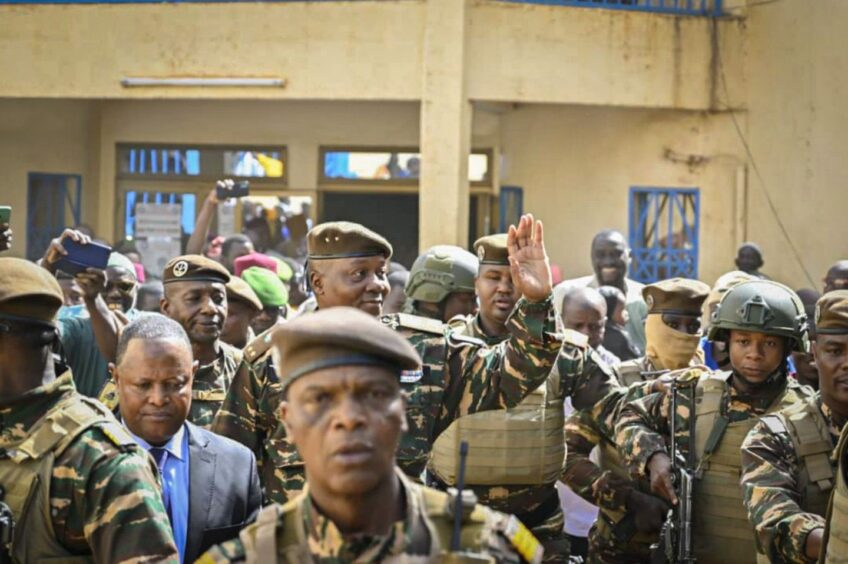
ECOWAS is coming to terms with Niger’s military government – and dangled the incentive of lifting sanctions, which may provide support for the country’s struggling oil industry.
A Chinese company completed the Niger-Benin pipeline in November. Construction officially began in May 2021.
President Abdourahamane Tiani, who seized power in July, has said Niger expects to begin exports in January.
Line fill is under way, he said, with volumes to reach 90,000 barrels per day.
The Niger-Benin pipeline will run for 1,980 km, of which 685 km is in Benin. It begins at Agadem, in Niger, and runs to the Atlantic Ocean, at Port Seme.
China National Petroleum Corp. (CNPC) signed a deal with Niger to build the line in September 2019.
Chinese company dominates Niger’s oil industry. However, UK-listed Savannah Energy is also active in the country, at the R3 East development.
Savannah had planned to carry out well testing this quarter. Following the coup, though, ECOWAS closed Niger’s border with Benin. As a result, Savannah said it was struggling to import the equipment it requires to carry this out.
Speaking on television, Tiani said Niger was also considering the construction of a second refinery.
Niger took issue with ECOWAS’ opposition to its new government. A legal team, in late November, argued that sanctions had taken a toll on the entirety of Nigerien society. Nigeria cut off the supply of electricity to Niger, accounting for around 70% of demand, as a result of the coup.
ECOWAS has called for the “immediate and unconditional” release of deposed president Mohammed Bazoum. The group said it would gradually ease sanctions, based on Niger’s response.
“The Authority deeply deplores the continued detention of President Mohammed Bazoum, his family and associates by the [military] regime,” it said. ECOWAS is establishing a high-ranking committee – including Benin President Patrice Talon – to hold talks with Niger’s government.
The aim, it said, was to agree a “short transition roadmap”. This aimed to restore constitutional order, it said. “Based on the outcomes of the engagement by the committee of heads of state with the [Niger government], the Authority will progressively ease the sanctions imposed on Niger.”
Should Niger fail to comply, though, ECOWAS reserved the right to continue sanctions and even the use or force.
Initially, ECOWAS had called for the military junta to reinstate Bazoum. Now that it calls just for his, and his family’s, release is a notable softening of its hard line. ECOWAS has also accused the Niger authorities of “interfering with humanitarian access”.
Controversially, Ouhoumoudou Mahamadou – who served as prime minister under Bazoum – attended the ECOWAS summit, representing Niger.
While the loss of trade is having a clear impact on Niger, it is also harming economic activity in northern Nigeria, International Crisis Group reported this month.
Tiani has recently visited Chad and Togo, holding high-level talks with his counterparts.
In addition to Niger’s oil plans, it is also working on increasing local electricity generation. A Chinese company has been involved in the construction of the 130 MW Kandadji Dam, but paused work in August owing to the coup.
